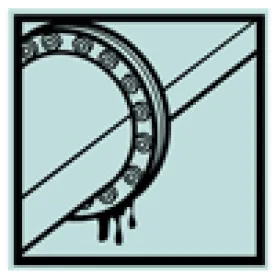PHMSA Issues Advisory Bulletin to Clarify Regulatory Requirements for Active and Abandoned Pipelines
On August 16, the Pipeline and Hazardous Materials Safety Administration (PHMSA) issued an advisory bulletin to clarify the regulatory requirements applicable to active or abandoned pipelines. The advisory bulletin stated that a gas or hazardous liquid pipeline is either active, and therefore subject to all applicable safety regulations in Part 192 or 195, or abandoned, i.e., permanently removed from service and not subject to Part 192 or 195. The advisory stated that the pipeline safety regulations do not recognize an “idle,” “inactive,” or “decommissioned” status. PHMSA indicated, however, that a pipeline purged of product presents different risks and may warrant different regulatory treatment. In particular, deferral of certain activities on purged but active pipelines may be acceptable and the agency is considering proposing procedures that would address how owners and operators would notify regulators of such pipelines. In the interim, owners and operators should coordinate deferred activities with regulators in advance.
PHMSA Rulemakings Update. The tables below summarize the status of PHMSA’s rulemakings as reported in the Department of Transportation’s (DOT) August Significant Rulemaking Report and by OMB’s Office of Information and Regulatory Affairs (OIRA) in the Spring 2016 Unified Regulatory Agenda. Revised dates appear in bold.
|
Proceeding |
DOT Estimated Submission to OMB* |
DOT Estimated Publication |
OIRA Estimated Publication |
|
Expanding the Use of Excess Flow Valves in Gas Distribution Systems to Applications Other than Single-Family Residences |
September 21, 2016 |
February 1, 2017 |
January 2017 |
|
Operator Qualification, Cost Recovery, Accident and Incident Notification, and Other Pipeline Safety Proposed Changes |
Not listed by DOT |
Not listed by DOT |
October 2016 |
|
Plastic Pipe Rule |
Not listed by DOT |
Not listed by DOT |
October 2016 |
|
Safety of Gas Transmission and Gathering Pipelines |
Information Not Available |
Information Not Available |
Information Not Available |
|
Safety of Hazardous Liquid Pipelines |
September 12, 2016 |
December 20, 2016 |
October 2016 |
|
Underground Storage Facilities (interim final rule) |
October 12, 2016 |
January 23, 2017 |
August 2016 |
|
Proceeding |
DOT Estimated Submission to OMB* |
DOT Estimated Publication |
OIRA Estimated Publication |
|
Periodic Updates of Regulatory References to Technical Standards and Miscellaneous Amendments |
Not listed by DOT |
Not listed by DOT |
July 2016 |
|
State Pipeline Safety Program Certification |
Not listed by DOT |
Not listed by DOT |
August 2016 |
|
Valve Installation and Minimum Rupture Detection Standards |
January 24, 2017 |
May 3, 2017 |
September 2016 |
*Under Executive Order (EO) 12866, OMB reviews proposed significant rules to ensure they are consistent with applicable law, the President’s priorities, and the principles set forth in the EO, and to ensure the proposals do not conflict with another agency’s policies or actions. OMB also analyzes the cost-benefit analyses in support of the proposals. While the EO sets out deadlines for OMB evaluation, review periods are often extended.
UPDATES FROM OTHER FEDERAL AGENCIES
New FAA procedures will enable use of drones for inspection and monitoring of pipelines. The Federal Aviation Administration (FAA) recently issued a final rule to regulate the commercial use of small unmanned aircraft or drones. In addition, Congress has instructed the FAA to develop procedures to exempt monitoring and inspection of critical infrastructure, such as pipelines, from any provisions in the final rule that could prevent using drones for such purposes. We recently issued an Alert providing an overview of the requirements and steps a pipeline operator must follow to operate drones for monitoring and inspection operations
UPDATES ON LITIGATION
DOT and PHMSA request dismissal of NWF’s lawsuits challenging approval of oil spill response plans. On August 22, DOT and PHMSA filed a response opposing motions for summary judgment filed by the National Wildlife Federation in separate pending lawsuits, that have (1) alleged that the Secretary of Transportation violated the Clean Water Act by failing to review and approve oil spill response plans, and (2) challenged PHMSA’s approval of an oil spill response plan submitted by Enbridge for its Line 5, which transports oil under the Straits of Mackinac. DOT and PHMSA argued that NWF’s suit is now moot because DOT has ratified PHMSA’s approval and that NWF lacks standing. DOT and PHMSA also filed motions for summary judgment requesting that the cases be dismissed.
UPDATES FROM INDUSTRY
API and AOPL release annual pipeline report. On August 18, the American Petroleum Institute and the Association of Oil Pipe Lines released their annual report and strategic plan. The report summarizes pipeline safety principles, analyzes industry safety records, and outlines efforts liquid pipeline operators are making to advance technologies and implement innovative approaches to inspecting, monitoring, and managing pipeline safety programs.
SELECT UPDATES FROM STATES
CALIFORNIA
CPUC Fines PG&E $25.6 million for record-keeping violations. On August 26, the CPUC issued a decision finding that Pacific Gas & Electric Company failed to maintain accurate records of its natural gas distribution system and imposing a fine of $25.6 million. The decision closes an investigation initiated in 2014 in response to six incidents attributed to inaccurate mapping of facilities or incorrect recording of facility specifications. The CPUC increased the fine proposed by the administrative law judge by $1.3 million.





 />i
/>i